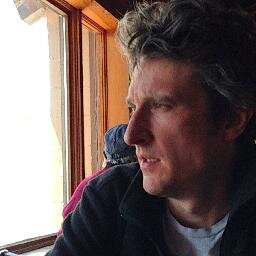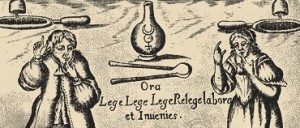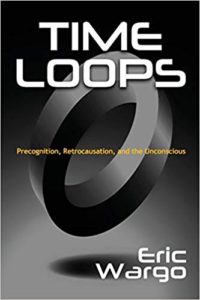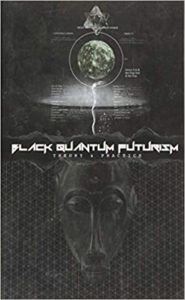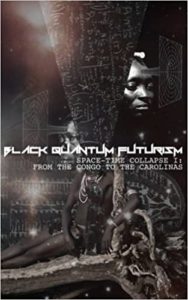The Nightshirt Sightings, Portents, Forebodings, Suspicions
Dune / LOTR
On the back cover of my Ballantine paperback edition of Dune, by Frank Herbert, is a review that sticks in my mind from my childhood: “I know nothing comparable to it except … the Lord of the Rings.” That ellipsis, I always imagined, was a dramatic pause.
Is Dune comparable to Tolkien’s masterpiece?
In the scale of the imagined world the author has created, and the endless dramatic and character possibilities, I suppose it is. And like Tolkien’s creation, Dune is a novel of ideas. Teenagers who read Herbert’s epic are enthusiastically devouring a philosophy. It happens to be a different philosophy from that of Tolkien, however, and one considerably less subtle. It is, in a word, Nietzcheanism.
The Nietzchean motto, “What doesn’t kill you, makes you stronger,” imbues Dune. Rereading the book as an adult I was struck by how strenuous was its ethos. It is a picture of humans whose mental and physical skills have evolved to a diamond hardness, and who have found a congenial social structure in a sort of interplanetary Feudalism where the aristocratic few are well-insulated from the restless many. These future supermen are always on edge, always prepared, perfectly trained even down to their micro physiological processes. And it is all very tiring, exhausting to read about. You can barely get your breath.
The most emblematic image or moment in the novel—at least, the one that has always stood in my mind—is the Reverend Mother’s test of the young Paul with the Pain Box, right at the start of the book. He holds his hand in the box while she holds a poisoned needle at his neck; though the box creates a sensory illusion of terrific burning pain, the boy must master his impulse to withdraw his hand or she will prick him with the needle. “It kills only animals,” she explains of the poison (called “Gom Jabbar”)—the implication being that it is the true human who can master his body and therefore endure the pain, knowing that it is only an illusion. Anyone else, anyone who fails the test, is an “animal,” in the strenuous ethos of this hardened far future—or at least, in the strenuous ethos of the order of sisters that the Reverend Mother represents.
Paul, because he has been trained in mental and martial disciplines from earliest childhood—and also because he is genetically superior, a product of selective breeding through several millennia—is able to pass the test, and is therefore deemed truly human.
This image contains within it the Nietzchean ethos of the novel: to be human is to have mastery over oneself, to be skilled, to be patient, and through skill and patience to survive. The heroes of the book—Paul, his mother, the Fremen—know how to survive, and thereby defeat their enemies. Dune certainly contains its bad guys—paradigmatically the soft, hedonistic, ruthless homosexual Baron Vladimir Harkonnen. The good guys are quietly patient, exemplified by the Fremen hoarding water in secret for centuries in order to alter their planet’s ecosystem; there is the poetic image of the solitary willow bending to the wind whose seeds produce a forest that breaks the wind.
So for Herbert, Good, if we can call it that, is an attitude to power, not unlike that found in an Eastern morality tale. Patience, self-mastery, skill, and in the end, ruthlessness. In Dune, the secret substance of the universe, permeating everything, is power. Humanity is a kind of mastery of this power, a knowledge of it and an ability to control it via submission. Like judo.
In the Lord of the Rings, the secret occult substance permeating everything is … humanity itself. There is a kind of undeveloped or nascent humanity in the trees, the stones, in the orcs, in everything. And the quality that brings out this humanity, that realizes and actualizes it, is … what? What is the quality possessed by the heroes? Pity? Mercy? Nobility? It is something like this. It has something to do with nobility and honor and pity. Non-judgement. Even the most evil beings, they are part of a memory of pain, they started as better creatures and were corrupted in long ages past.It is a chain of imperfection. Everything falls along a chain, not of perfection but of imperfection. It is, in other words, the Fall.
So the philosophical contrast between Herbert and Tolkien boils down to this: In Dune, even most humans aren’t human. Most humans are animals. In the Lord of the Rings, many animals are human. Even plants. There is humanity even in evil.
GI Joe
There was, I feel quite sure, a commercial when I was a kid, on Saturday mornings, for a GI Joe helicopter that had a winch and a rope hook that could lower GI Joe down and raise him back up at the flip of a small switch. I remember a boy (in the commercial) playing with this toy, the blades of the copter whirling, and Joe dangling down down down to some enemy territory—perhaps it was a real houseplant or tuft of grass in the backyard—the soldier’s brave inert body sort of dangling there against the turf and mud, body steeply angled, impassive face and sculpted plastic head looking slightly to the side, arms stiffly forward, his toes catching the ground and dragging along.
I think about this ad when I think about life. In our plastic posable bodies we are lowered from some toy aircraft by a ten-year-old, and dragged along the ground. The “bush” we find ourselves in is our existence. The philosopher Heidegger wrote of a human being’s “thrown-ness” into life, but he could have said our “dropped-ness” our “dangled-ness” too. What we do with our lives is our test. We need to accomplish some mission this ten-year-old-up-in-the-sky dimly has in mind for us before we will be raised back up.
The thing is, perhaps the kid forgets the mission, or really never had a clear idea of it to begin with. Perhaps he has put down the toy helicopter and gone to play with another toy, or been called in to dinner or off to school, or perhaps he has grown up and is now far, far away, with only dim memories if any of this one of a myriad pieces of plastic in his childhood.
Yet there you are. GI Joe. Descended from a helicopter in the backyard.
Dragged in the mud.
You were put in the world, dropped off at a certain place, with a certain body (stiff plastic arms raised forward, head cocked to one side, vacant blue stare) and you were given time.
Welcome to The Nightshirt
Welcome to The Nightshirt, my workbench for thinking about mysteries, mysticism, mind, and the human future.
We can’t hope to understand our minds without addressing the places where our understanding breaks down—dreams, mystical experiences, and phenomena like UFOs and ESP that defy explanation. But it goes both ways: We won’t get very far understanding those phenomena at the edge of our scientific understanding without “including the knower in the known.”
I also don’t think we can think about the human future without thinking about the possibilities of the nonhuman, the post-human, the pre-human, and the spiritual—themes dealt with in science fiction and other border zones in film and fiction. So I spend a lot of time on this blog thinking about sci-fi.
I’m a science writer in Washington DC with a PhD in Anthropology and a professional background working for organizations and government institutes conducting archaeology, psychology, and neuroscience research. In my spare time I meditate, read, read, re-read, cook, and collect obscure 70s vinyl—a rough translation of the alchemical motto “ora, lege, lege, relege, labora et invenies.”
I love to hear from readers and discuss this stuff via email: eric.wargo [at] gmail.com. Or please leave comments!
My Other Sites:
Gombrowicz in the Universe
DC Dueling Club
